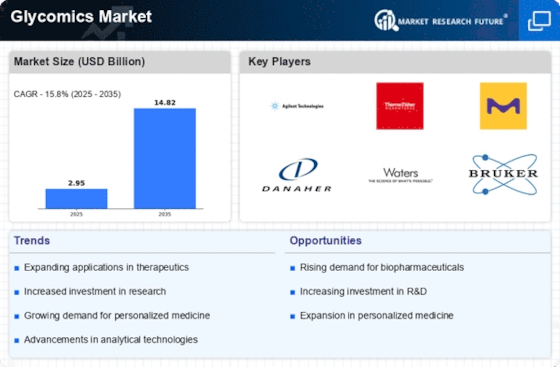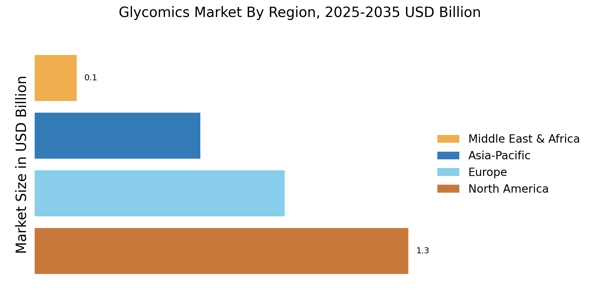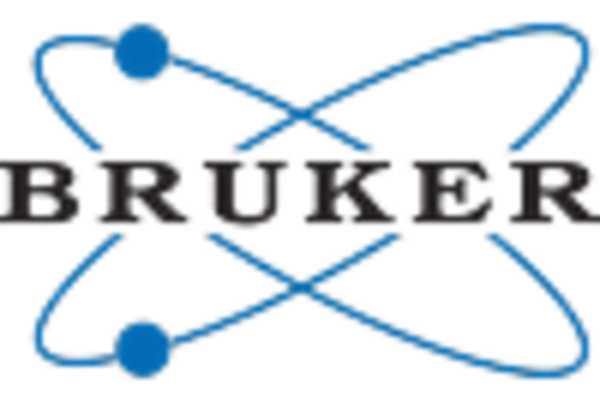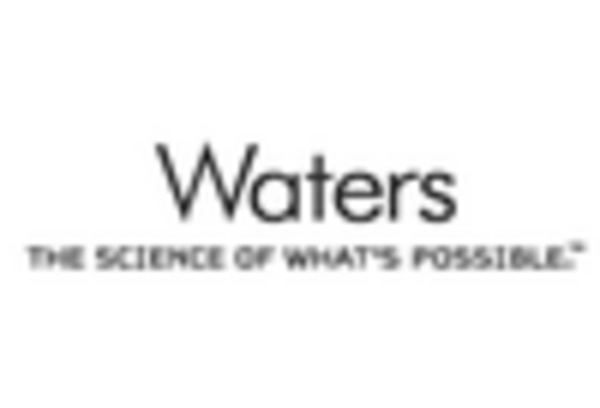Advancements in Analytical Techniques
The Glycomics Market is benefiting from advancements in analytical techniques, which are enhancing the ability to study glycans with greater precision and efficiency. Techniques such as mass spectrometry and high-performance liquid chromatography are becoming increasingly sophisticated, allowing researchers to analyze complex glycan structures. This evolution in technology is likely to facilitate more comprehensive glycomic studies, thereby driving innovation within the industry. As a result, the market for glycomics tools and services is projected to grow at a compound annual growth rate of 12% over the next five years. These advancements not only improve research capabilities but also expand the potential applications of glycomics in various sectors, including pharmaceuticals and diagnostics.
Increased Focus on Biomarker Discovery
The Glycomics Market is experiencing heightened interest in biomarker discovery, particularly for early disease detection and monitoring. Glycans have emerged as promising biomarkers due to their unique structural variations associated with different disease states. This focus on glycan-based biomarkers is likely to drive research and development efforts, as well as funding in the glycomics sector. Recent studies indicate that the biomarker discovery market is expected to reach USD 50 billion by 2027, with glycomics playing a pivotal role in this growth. The identification of novel glycan biomarkers could lead to breakthroughs in diagnostics and personalized treatment strategies, further solidifying the relevance of glycomics in modern medicine.
Rising Demand for Personalized Medicine
The Glycomics Market is experiencing a notable surge in demand for personalized medicine, which is increasingly recognized for its potential to tailor treatments based on individual patient profiles. This trend is driven by advancements in glycomic research that elucidate the role of glycans in disease mechanisms. As healthcare systems shift towards precision medicine, the Glycomics Market is poised to benefit significantly. According to recent estimates, the market for personalized medicine is projected to reach USD 2.5 trillion by 2025, indicating a robust growth trajectory. This demand is likely to propel investments in glycomic technologies, fostering innovation and expanding the application of glycomics in drug development and diagnostics.
Growing Applications in Drug Development
The Glycomics Market is witnessing an expansion in applications related to drug development, particularly in the fields of oncology and immunology. Glycans play a crucial role in the efficacy and safety of therapeutic agents, influencing drug interactions and immune responses. As pharmaceutical companies increasingly recognize the importance of glycomic profiling in drug design, the market is expected to grow. Recent data suggests that The Glycomics Market is anticipated to reach USD 1.5 trillion by 2026, with glycomics contributing a significant share. This trend underscores the necessity for integrating glycomic analysis into the drug development pipeline, thereby enhancing therapeutic outcomes and patient safety.
Collaborations and Partnerships in Research
The Glycomics Market is witnessing an increase in collaborations and partnerships among academic institutions, research organizations, and biotechnology companies. These alliances are aimed at accelerating glycomic research and translating findings into practical applications. By pooling resources and expertise, stakeholders can enhance the pace of innovation and address complex challenges in glycomics. Recent data suggests that collaborative research initiatives have led to a 30% increase in published glycomic studies over the past three years. This trend indicates a growing recognition of the importance of interdisciplinary approaches in advancing glycomics, which may ultimately lead to novel therapeutic strategies and improved patient outcomes.

















